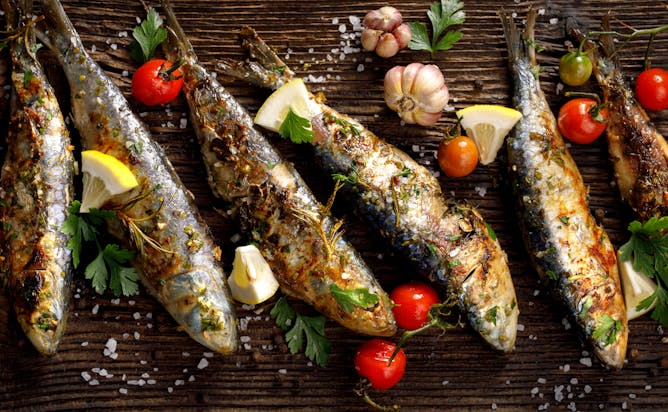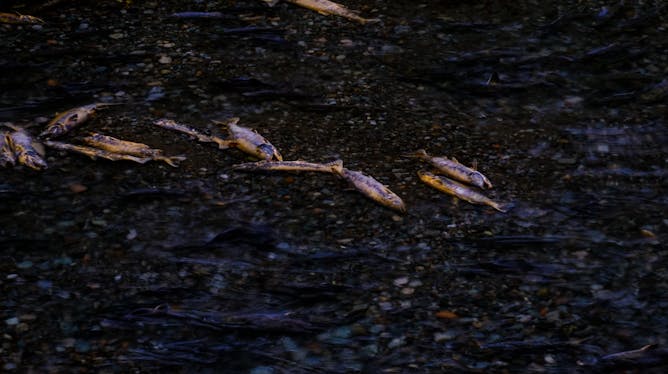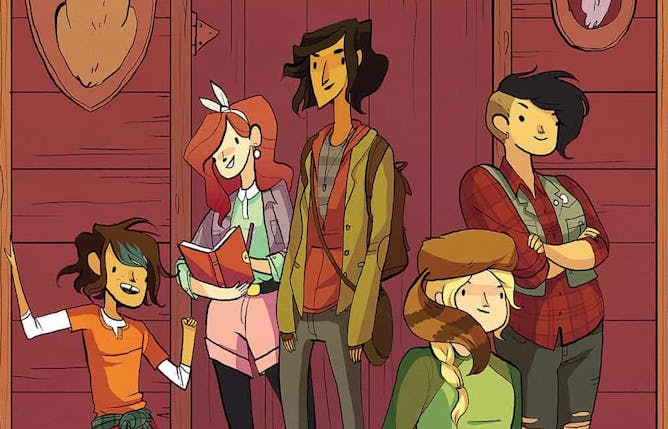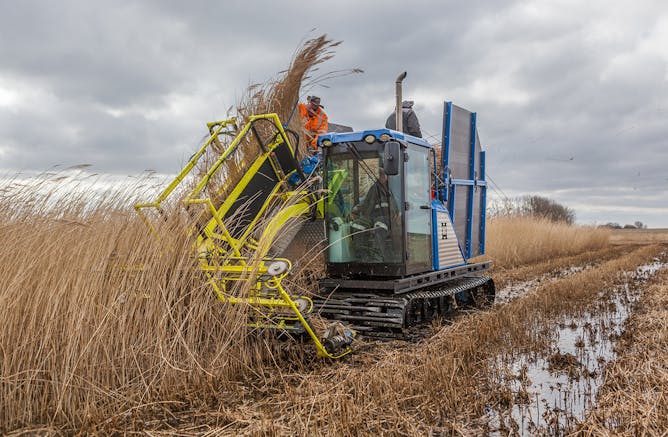|
Have you ever noticed menu changes at your favourite eatery? Restaurants often update their menus depending on various factors including evolving culinary trends, shifting consumer preferences and the availability of ingredients required to prepare these signature dishes.
Today in The Conversation Canada, William W.L. Cheung from the University of British Columbia talks about yet another factor that has caused restaurants to rewrite their menus — climate change.
With every passing year, we have witnessed the effects of climate change escalating and intensifying. We have seen heatwaves, loss of sea ice, flooding, wildfires and ocean warming in recent decades alone.
Cheung talks about how ocean warming has caused an influx of warm-water fish and other marine species higher and higher up the West Coast of North America over the past century. This has influenced the fish catch, seafood availability and restaurant menus along the northern Pacific coastline.
Also today:
Regards,
|

|
Freny Fernandes
Editor
|
|

Warmer-water preferring fish species like sardines and squid may soon dominate seafood menus on the west coast of Canada.
(Shutterstock)
William W. L. Cheung, University of British Columbia
As the ocean temperature rises, many marine species are moving toward the north and south poles in search of cooler waters, thus rewriting the menus of seafood restaurants on the West Coast of Canada.
|

A young dancer looks on before performing for a crowd during a ‘Cancel Canada Day’ rally in Toronto, in 2021.
THE CANADIAN PRESS/Christopher Katsarov
Vinita Srivastava, The Conversation; Haley Lewis, The Conversation
We’re launching the third season of Don’t Call Me Resilient, our podcast that takes on systemic racism and the ways it permeates our everyday lives.
|

Russian President Vladimir Putin, right, listens during a joint news conference with French President Emmanuel Macron after their talks in early February 2022 in Moscow on escalating tensions with Ukraine.
(AP Photo/Thibault Camus, Pool)
Deborah de Lange, Toronto Metropolitan University
New research on diplomacy and backroom bargaining suggests diplomatic efforts are unlikely to be successful with Vladimir Putin. That’s why Emmanuel Macron’s diplomacy attempts aren’t working.
|

Chum salmon at the end of their life cycle in Fish Creek, Alaska.
(Andrea Reid)
Andrea Reid, University of British Columbia
Indigenous knowledge systems are valuable in addressing the salmon crisis in British Columbia and beyond.
|

‘Lumberjanes,’ launched in 2014, traces the adventures of campers at Miss Quinzella Thiskwin Penniquiqul Thistle Crumpet’s Camp for Hardcore Lady Types.
(BOOM! Studios)
J. Andrew Deman, University of Waterloo
Strong queer representation in young adult comics can have a significant positive impact on the well-being of queer-identified or questioning youth.
|

Stereotypes and common misconceptions about dementia often emerge in the metaphors used to explain and understand it.
(Shutterstock)
Jasmine Mah, Dalhousie University; Kaitlin Sibbald, Dalhousie University
Because they help to create a shared understanding, metaphors can play a critical role in navigating the gap between the knowledge patients and health-care providers bring.
|
La Conversation Canada
|

La paludiculture en action. Les tracteurs équipés d'une transmission par chaîne sont une condition préalable aux activités agricoles sur les sols tourbeux réhumidifiés.
(Tobias Dahms)
Rafael Ziegler, HEC Montréal; Magali Simard, HEC Montréal; Rahma Eldeeb, Université de Montréal
Les tourbières asséchées contribuent à 5 % des émissions mondiales de carbone. La paludiculture protège les tourbières et permet aux agriculteurs de conserver leurs moyens de subsistance.
|
Ukraine Invasion
|
-
Marcia Zug, University of South Carolina
Ukraine says thousands of Ukrainian children have been kidnapped by Russian soldiers, which is a war crime. The U.S. government kidnapped and forced the assimilation of Indigenous children for decades.
-
Jess Carniel, University of Southern Queensland
For many, the 2022 Eurovision Song Contest has answered the eternal question: is Eurovision political?
|
|
COVID-19
|
-
Nathaniel Hafer, UMass Chan Medical School; Apurv Soni, UMass Chan Medical School
With the relaxation of mask-wearing mandates, there’s even more need to know how much over-the-counter tests help.
|
|
Culture + Society
|
-
Ferdinand de Jong, University of East Anglia
Senegal’s colonial heritage has been interpreted to conceive an African future, turning colonial heritage into an archive of a possible Afrotopia.
|
|
Science + Tech
|
-
Scott Hollier, Edith Cowan University; Justin Brown, Edith Cowan University
There is little evidence organisations consider digital accessibility by default. It usually happens if they have a senior accessibility champion in their ranks, or when they get sued.
|
|
|
|
| |
| |
| |
| |

|
| |
| |
| |
| |
| |
| |
|
|